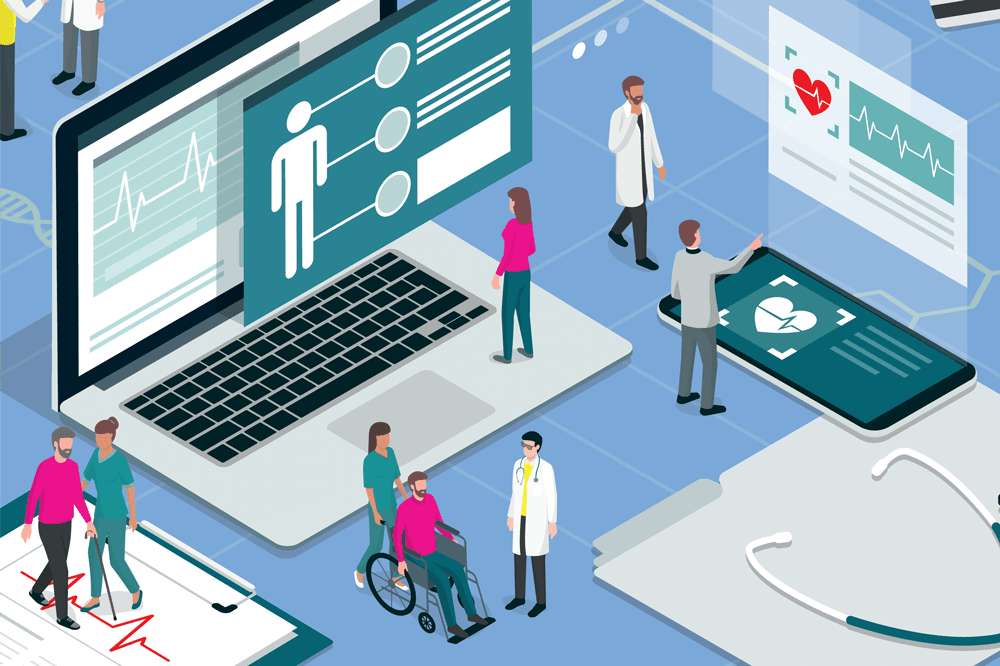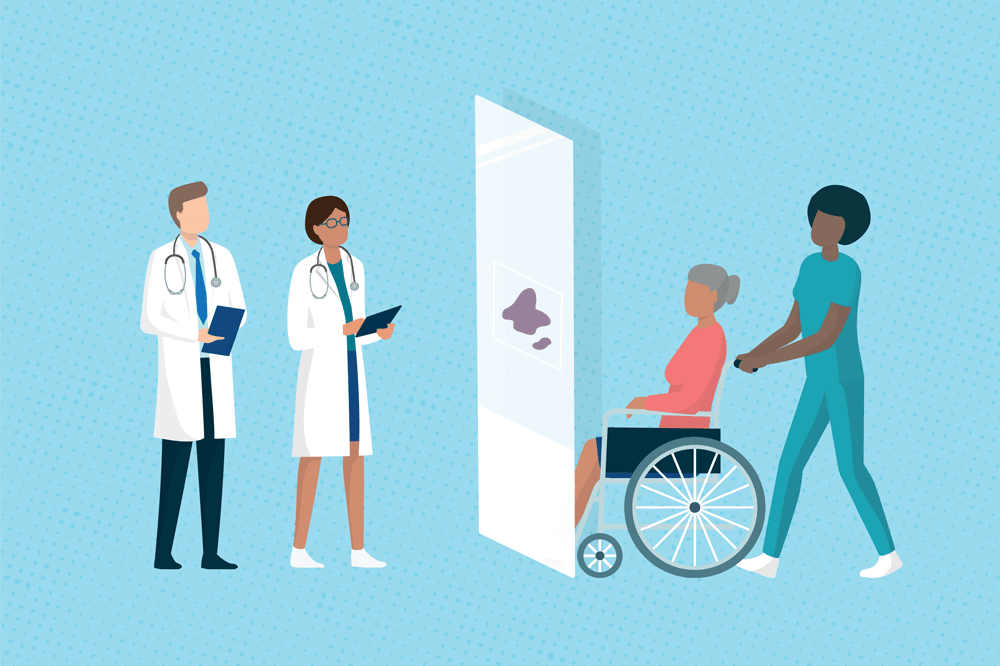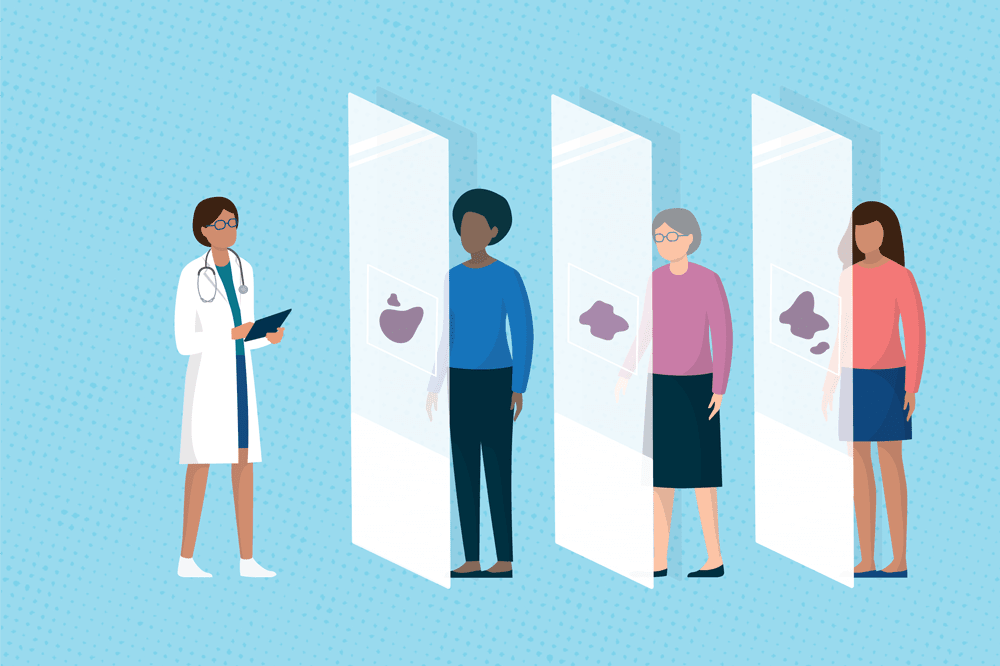What’s the best career advice you’ve ever received? We recently asked that question of you, our readers, so that we might share those wise words with the whole community. Your responses came from every corner of the laboratory: from pathologists, clinical laboratory scientists, pathologists’ assistants, medical technologists, and more.
No stage of the journey is too early – or too late – to benefit from the wisdom of others (a sentiment with which many of you agreed). Here, with your permission, we share the most digestible career advice you’re likely to find.
UHW Cellular Pathology
@CellularUhw
“No matter how difficult or complex the diagnosis can be, keep it as simple as possible for the clinicians to understand.” This is the most helpful advice I got! – Ioulia Evangelou, consultant histopathologist, UHW
Phillip Templo Jr.
@thejourneymate
One of my mentors said that if you don’t have many opportunities, you should create your own opportunities. I think this advice is even more relevant now in the era of social media. I was able to expand my horizons through teaching, research, and overseas training.
Gynae Path
@GbGynae
There is a person at the end of every biopsy.
Doris-Ann Williams
@DorisAnnW
If you hear galloping hooves, don’t expect to see a zebra out of the window – in other words, look for most likely solution before the obscure.
Gino Somers
@GSomersPath
Be nice to people – it pays off in spades…
Marc Ladanyi
@MLadanyi
My vote for best piece of career advice not just in pathology but science in general: “Seek out and interact with people who are smarter than you are.” (I did not come up with this one, just read it somewhere.)
Elizabeth Montgomery
@LizMontgomeryMD
Be generous with forgiveness and opportunities; be humble with successes.
Wendy Frankel
@WendyFrankelMD
Look for the best in others.
Emily Shaffer
@DrMissWV
As a #pathologist, you need to understand the consequences of every call you make. Will this patient require more frequent screening? More invasive testing (with increased risks)? An additional procedure/surgery due to unclear margins? What will it cost them in medical expenses and lost earnings? It matters!
Cory Nash
@iplaywithorgans
Not a pathologist, but a pathologists’ assistant. Two things come to mind: 1) My preceptor during clinicals would always start the day by saying, “Who’s ready to save lives?” Always important to remember why we do this. 2) From the same preceptor: Never assume anything. Know.
Joe Chaffin
@bloodbankguy
Do what you love to do! Don’t just chase the “hot” subspecialty or what “everyone else” wants to do. Figure out what really makes you happy professionally; the thing that, when you’re doing it, time just FLIES, and DO THAT! Life’s too short to hate your job.
Sarah Bean
@DrSMBean
Self-reflect to understand your #values. Then develop a personal #mission and #vision statement that aligns with your institution. Use these to assess opportunities. Don’t be afraid to say #no when there is not alignment. Also, remember to revisit this exercise regularly.
Lija Joseph
@lijjoseph
Find a mentor you trust as early as possible in your career! Be true to your conscience, and be kind even when no one is watching! Never ever give up on someone or something you believe in!
Kenneth Tang
@drkennethtang
Each case is a consult for your histopathological expertise and there is a patient (in fact, your patient) behind each case. Try to correlate with the relevant info, which is often not on the form but it will be on the EMR or one phone call away.
Jennifer Laudadio
@JLaudadioMD
1. Great mentors open doors. Successful mentees walk through them. (From @jhuntpath.)
2. The three As… be available, affable, able.
Mary Kinloch
@saskmary
Research is the one time in your career when you get to choose who you work with. Choose to work with your friends. – Blake Gilks
David Grenache
@ClinChemDoc
Not a pathologist, but a clinical chemist for 16 years. Career advice: “Go to graduate school and earn your PhD.” Practice advice: “Quality is everything.”
Sara Jiang
@Sara_Jiang
I’ve benefited from so many great mentors – one of my favorites (especially in our fast-paced get-it-done-yesterday world) is, “First get good, then get fast.”
Aadil Ahmed
@AadilAhmedMD
Out of sight, out of mind! Focus on what’s in front of you!!
Eiman Adel Hasby
@eimanhasby
“Talk to clinicians in their language.”
“Your decision is a decision in another’s life.”
C. Moreno Sainz
@cmorenosainz
Years ago, welding the mirror of a Spec 20. It was good; I tried to improve it, and it stopped working. Tip: “Sometimes, the best is the enemy of the good.” When you fix a device and it works well, do not insist on better.
Our reason for being. Tip: “Do what you think is best for the patient.”
Joseph G. Keary
@GI_Joe_K_4_CLMA
The best advice I received early in my military career was the saying, “Bad news doesn’t get better with age.” It has many applications, but I use it to teach young clinical lab scientists that, if they make a mistake, be upfront with it and correct it before it gets worse.
David Gaze
Best advice: when writing a paper, print it to proofread it; don’t read on the PC screen. I now advise all my students to do the same with their own assignments.
Khaled Lounis
Behind every slide is a human being!
Shazia Tabassum Hakim
“Six hours’ sleep fail… five hours’ sleep pass,” given by my mentor, teacher, and first boss, Prof. Dr. Essa M. Abdullah!
Pat Fournier
Forty-three years ago I started my amazing career as a medical technologist with such interest and energy for lab sciences. I still teach my students to think outside the box all the time; if you feel bored, move on to another area of the field where you experience discomfort, but never stop learning and experiencing the new areas of science and the development of new tests. Do your work with passion. One needs to learn something new every day. Your pathologist is your best friend and teacher in the lab.
Ralph Ioder
During my internship as a clinical lab scientist, the education coordinator for the program told me to consider being a generalist for my first few years in my profession. This move not only cemented the knowledge I gained during training, but kept more options open to me in my career. I also helped train CLS interns and I passed that belief onto them.
Bethany Williams
Put your career in perspective – it is not a race to the end. If you feel you need more time to develop skillsets or pursue academic or clinical interests, do so! There is no single career path that suits everybody, and you need to concentrate on making decisions that suit your development needs and aspirations.
Tweets and messages have been edited for readability only.





